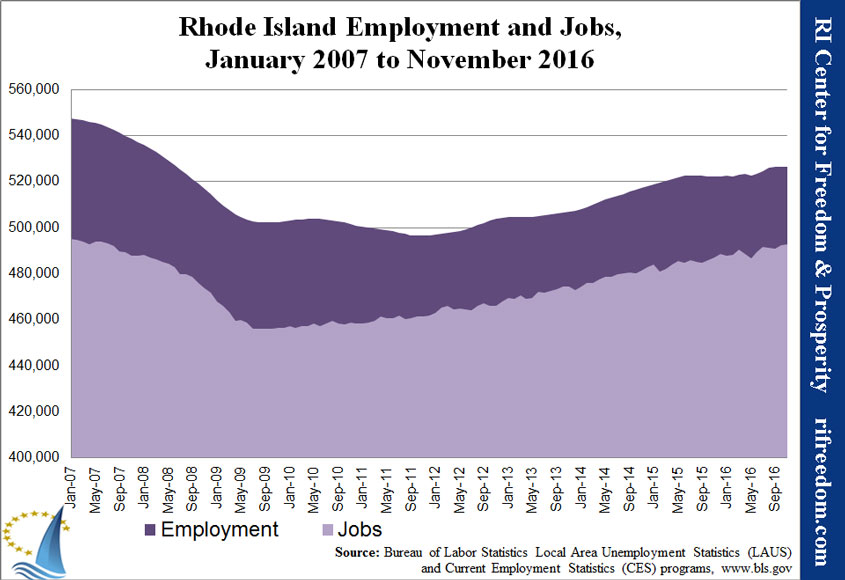The Injustice of an Economy That Can’t Even Generate Gigs
One could argue positives or negatives about the trend that Dan Kopf describes here:
“We find that 94% of net job growth in the past decade was in the alternative work category,” said Krueger. “And over 60% was due to the [the rise] of independent contractors, freelancers and contract company workers.” In other words, nearly all of the 10 million jobs created between 2005 and 2015 were not traditional nine-to-five employment.
If Americans are freeing themselves from a norm of fealty to and reliance on large companies and still thriving, that might be to the better for them and for society, which would arguably gain a more dynamic economy. Of course, it could also be that people can’t find steady work and are therefore having to piece together a living.
I worry that the latter is more the explanation, especially in places like Rhode Island, where the economy has been wallowing for years and where the government is trying to behave as a corporate board for all business (e.g., pushing through minimum wage laws and parental leave mandates so politicians can take credit for “giving” raises and benefits). Companies just won’t want the responsibility of employees when the government is apt to try to buy their political favor with impositions on the company on an ongoing basis.
Of course, in Rhode Island, it isn’t clear that we’re seeing even “gig economy” job growth (in which workers survive by stringing together discrete “gigs”). As one of my monthly charts shows, the increase in staid old-style jobs (slow as it’s been) has been outpacing employment as a whole. Some of the difference is out-of-state workers, but the biggest factor — the largest contingent making up the gap between the two areas in the following chart — is probably self-employed Rhode Islanders who are “employed,” but not technically holding down a “job”:

Since the recession, those in the dark area of the chart have shrunk from around 9.5% of total employment to about 6.5%, with no signs of reversal. That’s not surprising, because Rhode Island not only emphasizes forcing businesses to give employees benefits they can’t afford, but also making it difficult for employees to strike out on their own.
The common theme is government control, which leads elected officials always to seek to solve the problems that government creates with more government. Sure, the state treats business owners as its subordinates and tells them how to run their companies, but then it attempts to protect them from competition by throwing obstacles in front of start ups.
It’s simply not right — it’s an injustice — and it ought to stop.


